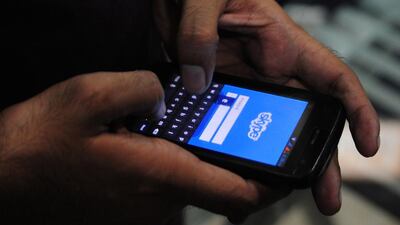I mark a milestone in my expat life this month: a dear friend is leaving Abu Dhabi and returning to Australia. I suppose the upside of her departure is that I will have a place to stay if and when I ever make it to Australia, but in the meantime I will have to adjust to life in Abu Dhabi without her regular companionship.
Well, I hear you say, people come and go all the time; it’s the way of the world these days, so what’s really the big deal? That’s true, I guess: we are an increasingly mobile society, whether from choice or duress. Most of us have family and friends scattered across countries and continents. We tell ourselves that Skype and WhatsApp make it seem as if we’re all in the same village.
Technology does make things easier, certainly. Recently I’ve been researching an English explorer who travelled to the Levant on her own in the 19th century, an extraordinary story documented in her letters, which took months, even years, to go back and forth. (Remember letters? They were written on paper, and could be saved for generations, in a way that won’t ever happen with “snapchats”.)
When she sent a letter from Lebanon in 1813, she had no way of knowing if the people she knew in England were even still alive – nor they her, if they chose to write back. Now? I will inevitably Skype my friend in the small hours, Australian time, because I will have forgotten that she’s in a different time zone.
The 19th-century explorer, a woman named Hester Stanhope, set off from England with very few companions; like Tennessee Williams’ Blanche DuBois, she had to depend on the kindness of strangers. For Blanche, this “kindness” was mostly an illusion, but Hester probably would have died without kind strangers to help her navigate the complex and dangerous world of the Levant.
The rest of us depend on the kindness of strangers too, although I hope that we’re not as deluded as Blanche or as desperate as Hester. When you move to a new place, particularly a new country or culture, it’s the kind strangers who help smooth the landing. They offer the loan of a toolbox or a ride to the grocery store; they point your children towards pitches and playgrounds, explain how to navigate local bureaucracies. Sometimes these kind strangers fade back into the neighbourhood landscape to become the people you only talk to about the weather or sports. But sometimes, if you’re lucky, a kind stranger becomes a friend; you realise you’re seeking out the pleasure of her conversation and not just answers to specific questions: what’s a Mawaqif, does the Etisalat app ever work, are grocery prices always this high?
My Australian friend started as a kind stranger: shortly after we arrived in Abu Dhabi, she left a casual comment on my blog about having transferred her own children to the same school that I was thinking about for my children. Little did she know that I would latch onto her comment – and, subsequently, her – in my efforts to figure out not only the new school but also the new city.
The thing is, after a certain age, the friend-making muscle can get a little stiff, like an arthritic hip or shoulder; nothing is as flexible as it once was and the range of motion becomes, sadly, a bit limited. Of all the things I expected from our move to Abu Dhabi, making new friends, somehow, wasn’t on the list – probably because I thought my “friend-making” days were behind me. If you find a friend – someone who offers equal measures of laughter and wisdom – at this stage of the game, it's like regaining your jump shot or doing a handstand without worrying that you’ll throw out your back.
But now my friend is leaving; a departure that I suppose was inevitable. So for her, and anyone else who may be moving on, I wish the gift of kind strangers to help smooth the landing, wherever it may be.
And get the guest rooms ready. Some of us might already be planning a visit.
Deborah Lindsay Williams is a professor of literature at NYU Abu Dhabi

